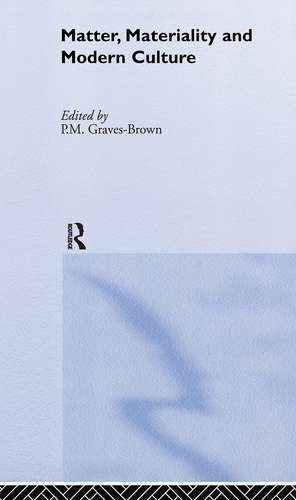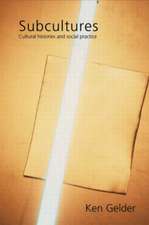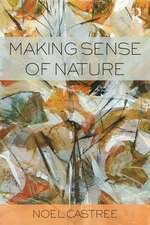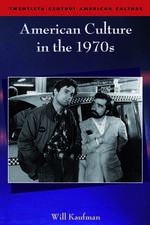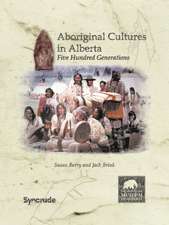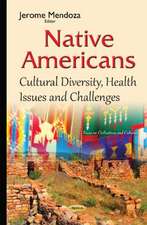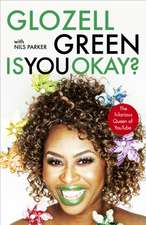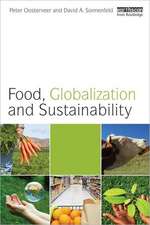Matter, Materiality and Modern Culture
Editat de Paul Graves-Brownen Limba Engleză Hardback – 11 mai 2000
* why do Berliners have such strange door keys?
* should the Isle of Wight pop festival be preserved?
* could aliens tell a snail shell from a waste paper basket
* why did Victorian England make so much of death and burial?
| Toate formatele și edițiile | Preț | Express |
|---|---|---|
| Paperback (1) | 365.79 lei 6-8 săpt. | |
| Taylor & Francis – 11 mai 2000 | 365.79 lei 6-8 săpt. | |
| Hardback (1) | 1002.63 lei 6-8 săpt. | |
| Taylor & Francis – 11 mai 2000 | 1002.63 lei 6-8 săpt. |
Preț: 1002.63 lei
Preț vechi: 1222.73 lei
-18% Nou
Puncte Express: 1504
Preț estimativ în valută:
191.86€ • 200.82$ • 159.68£
191.86€ • 200.82$ • 159.68£
Carte tipărită la comandă
Livrare economică 31 martie-14 aprilie
Preluare comenzi: 021 569.72.76
Specificații
ISBN-13: 9780415167048
ISBN-10: 0415167043
Pagini: 192
Dimensiuni: 156 x 234 x 15 mm
Greutate: 0.52 kg
Ediția:1
Editura: Taylor & Francis
Colecția Routledge
Locul publicării:Oxford, United Kingdom
ISBN-10: 0415167043
Pagini: 192
Dimensiuni: 156 x 234 x 15 mm
Greutate: 0.52 kg
Ediția:1
Editura: Taylor & Francis
Colecția Routledge
Locul publicării:Oxford, United Kingdom
Public țintă
Postgraduate and UndergraduateNotă biografică
P.M. Graves-Brown studied Archaeology and Prehistory at Sheffield University and gained his PhD in archaeology at Southampton University. He currently works as an archaeological curator in South Wales. He has published a wider variety of work, mainly on human origins and modern material culture.
Cuprins
Introduction; PAUL GRAVES-BROWN; Background; Embodiment; Mutuality; Functionality and power; Indigenous theory and illusion; 1 The Berlin key or how to do words with things, BRUNO LATOUR; 2 The functions of things: a philosophical perspective on material culture, BETH PRESTON; Introduction; Two philosophical conceptions of function; Function in material culture; Implications for archaeology; Conclusion; 3 Making culture and weaving the world, TIM INGOLD; Artefacts and organisms; Making and growing; On encountering a basket; Surface, force and the generation of form; Spirals in nature and art; The limits of design; On the growth of artefacts; Baskets and textiles; Making as a way of weaving; Weaving by birds and humans; Conclusion; 4 Indigenous theories, scientific theories and product histories, MICHAEL BRIAN SCHIFFER; Introduction; Indigenous theories and the demise of the early electric car; Indigenous theory: the dark side; Behavioural theories and scientific product histories; Discussion and conclusion; 5 Taking things more seriously: psychological theories of autism and the material-social divide, EMMA WILLIAMS AND ALAN COSTALL; The social context of object use; How children with autism relate to objects; Current theoretical models of autism and the material-social divide; The material-social divide; 'Socialising' affordances; Conclusion; 6 Pomp and circumstance: archaeology, modernity and the corporatisation of death: early social and political Victorian attitudes towards burial practice, GEORGE NASH; Introduction: the growth of secularised society; Good mourning: respectability of death; Time for change; Health and social security; Ascending Highgate Hill; Termination at the London Necropolis Company Terminus; To summarise; 7 Never mind the relevance? popular culture for archaeologists, A.J. SCHOFIELD; Snapshots; Introducing popular culture; Heritage and anti-heritage: definitions, contradictions; Exploring youth culture: 1962-75; Conclusion; 8 Always crashing in the same car, PAUL GRAVES-BROWN; Habitat or skin?; The secret life of things; Symbolic wounds; Pornography; Risk and control; In conclusion: who, or what, is to blame?; Index;
Descriere
This collection of essays offers a new approach to the study of contemporary objects. The authors are from a diverse range of disciplines and each offer their own perspective on what material culture is and how objects affect human life.
